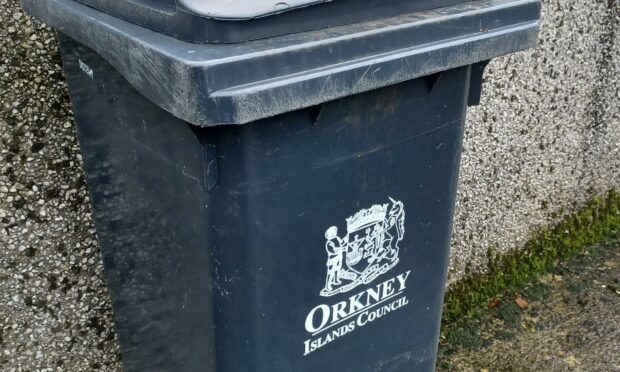The latest figures on household waste recycling show Orkney once again lags behind the Scottish average.
So, why is Orkney Islands Council perfectly happy with the stats?
Over the last year, Orkney generated 8,481 tonnes and 23.4% of that, or 1,985 tonnes, was recycled.
This is well behind the national average of 42% recycled.
In fact, Orkney is only ahead of Shetland in the Scottish Environment Protection Agency’s (SEPA) figures for 2020.
However, while the national average dropped by 2.9% when compared to 2019, Orkney’s percentage grew from 18.8% in 2019. This also surpassed 2018’s higher rate of 21.1%.
While this shows Orkney is headed in the right direction, why is the percentage still so far below the Scottish average?
Orkney council’s interim head of roads, fleet, and waste Lorna Richards explained this is because the figure for Orkney is affected by what the council can collect and process.
Specifically, this applies to food and garden waste.
She said: “Your recycling rate is dependent on what you can collect and how you can collect it which depends on the infrastructure you have in place.
‘Orkney is starting from a very different position than other local authorities’
“We don’t collect food waste separately and although we do collect garden waste at the household recycling centres we’re not able to process it to the standards that allows it to be reflected in the figures.
“So we are starting from a very different position from the majority of other local authorities in Scotland.”
The vast majority of other local authorities collect food waste separately.
That’s a requirement under the 2012 waste regulations. Embedded in those regulations is a rural exemption.
So for certain rural postcodes, you don’t need to collect food waste separately.
Ms Richardson added: “We’re not separating food waste and that’s still sitting in our residual waste.
“We do collect garden waste separately, but there was a change in the reporting system in 2014.
This said that for garden waste to be classed as recycled it had to be processed to a certain standard. We don’t have the facilities to do that.”
Ms Richardson also said there was a third part to the problem. The constraints Orkney faces with its existing waste facilities mean it can’t separate materials and has to collect them separately.
She said the other local authority areas in Scotland collect a wider range of plastics than Orkney council.
It can’t collect things items like yoghurt pots because it can’t separate them from plastic bottles it does collect.
If these items were mixed together it would affect the quality of the “material steam” Orkney sends away to be recycled.
So what is the council doing? The obvious point of progress is a proposed new integrated waste facility, which would be built just outside Kirkwall, if it goes ahead.
‘Given the systems we have in place, 23.4% recycled is actually a very good performance’
Ms Richardson said: “That would allow us to collect a much wider range of materials and have the space to separate them and send them south in individual material streams.
“That will allow us to bring in different collection methods and collect a wider range of materials at the curbside.”
The proposed facility would be built at the site of the old abattoir at Hatston Industrial Estate.
It would also let the council gather and compost garden waste.
As with many aspects of council business, Orkney faces its own unique situation.
So does Ms Richardson feel it’s fair to compare the recycling numbers for Scotland’s local authorities?
She said: “It’s fair to say that all the waste managers in all the local authorities are quite competitive.
“For as long as I’ve been involved in this, we have all looked at each other’s numbers and compared ourselves, but we also have that understanding that we’re all at different starting points.
“There’s no point in me comparing us to a local authority south that can collect a wider range of materials. It’s good to have a consistent approach across Scotland but it does lead us to explain that, given the systems we have in place, 23.4% recycled is actually a very good performance.”
